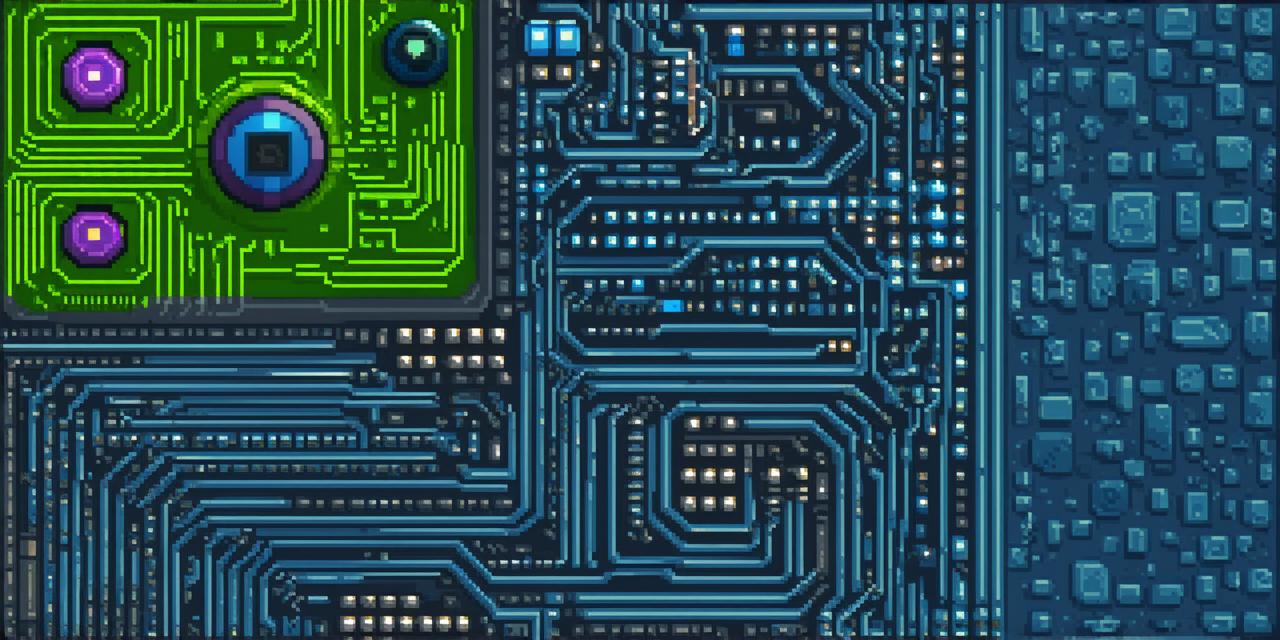Game development is a highly competitive and rapidly evolving industry that presents numerous challenges for developers.
One of the primary challenges faced by game developers is the complexity of game design.
Games require a high level of creativity and innovation to stand out in a crowded market. Developers must consider various factors when designing a game, including storytelling, art direction, character development, mechanics, sound effects, and more. Each of these elements must work together seamlessly to create an engaging and immersive gaming experience.
The complexity of game design also extends to the technical aspects of game development. Developers need to ensure that their games are compatible with various platforms, such as consoles, computers, mobile devices, and virtual reality systems. They must also optimize the game’s performance, ensuring that it runs smoothly and looks great on all devices.
Time management is another significant challenge faced by game developers.
Game development projects are often complex and time-consuming, requiring a team of skilled professionals to work together over an extended period. Developers must manage their resources effectively to ensure that the project stays on track and within budget.
The pressure to deliver games quickly can lead to rushed deadlines, which can result in lower quality products. In addition, developers may need to make significant changes to a game’s design or mechanics to meet changing market demands, further delaying the release date.
The cost of development is another challenge faced by game developers.
Game development is an expensive process that requires a significant investment in time and resources. Developers must acquire specialized software, hardware, and talent to create high-quality games. The cost of game development can vary significantly depending on the complexity and scope of the project.
The gaming industry is highly competitive, with new games being released every day.
To succeed in this market, developers must be able to differentiate themselves from their competitors. This requires a deep understanding of the target audience and what they are looking for in a game. Developers must also stay up-to-date with the latest trends and technologies in game development to remain competitive.
Quality assurance is an essential part of game development that ensures the game is free from bugs, errors, and other issues that can negatively impact the player’s experience.
Developers must conduct rigorous testing and debugging to ensure that their games are stable and reliable. This process can be time-consuming and expensive, but it is critical to ensuring a positive player experience.
Marketing is another critical aspect of game development that requires careful planning and execution.
Developers must create a marketing strategy that effectively communicates the game’s features and benefits to potential players. This can involve creating a compelling trailer, social media campaign, or launch event to generate buzz around the game.
Monetizing games is another challenge faced by developers.
Game monetization strategies can vary significantly depending on the type of game and target audience. Developers must consider various factors when designing their monetization strategy, including advertising, in-app purchases, subscription models, or a combination of these.
Let’s look at some real-life examples of the challenges faced by game developers.
Red Dead Redemption 2
Red Dead Redemption 2 is an open-world action-adventure video game developed by Rockstar Games. The game was released in October 2018 and quickly gained critical acclaim for its immersive world, engaging storyline, and impressive graphics.
However, the development of Red Dead Redemption 2 faced numerous challenges, including frame rate problems and crashes. Additionally, the game’s complex storyline and vast open-world environment presented significant challenges for the game’s narrative and pacing.
Pokémon Go
Pokémon Go is a mobile augmented reality game developed by Niantic Labs. The game was released in July 2016 and quickly gained popularity, with millions of players worldwide downloading the app.
However, the development of Pokémon Go faced several challenges, including server crashes and connectivity problems. Additionally, the game’s reliance on real-world locations for gameplay presented challenges for developers in terms of ensuring that the game was accessible to all players and avoiding conflicts with local businesses and landmarks.
Minecraft
Minecraft is a sandbox construction video game developed by Mojang Studios. The game was released in 2011 and quickly gained a massive following, with millions of players worldwide enjoying the game’s endless creative possibilities.
However, the development of Minecraft also faced challenges, including server lag and mod compatibility problems. Additionally, the game’s open-world environment presented challenges for developers in terms of ensuring that the game remained engaging and immersive over time.
Conclusion: Is Game Development Really Difficult?
Game development is undoubtedly a challenging process that requires a significant investment of time, resources, and creativity. However, with careful planning and execution, game developers can create highly engaging and immersive gaming experiences that resonate with their target audience.
By understanding the challenges faced by game developers and implementing effective strategies to overcome them, game development companies can stay competitive in this rapidly evolving industry. Additionally, players can appreciate the hard work and dedication that goes into creating these incredible games that provide endless entertainment and enjoyment.
